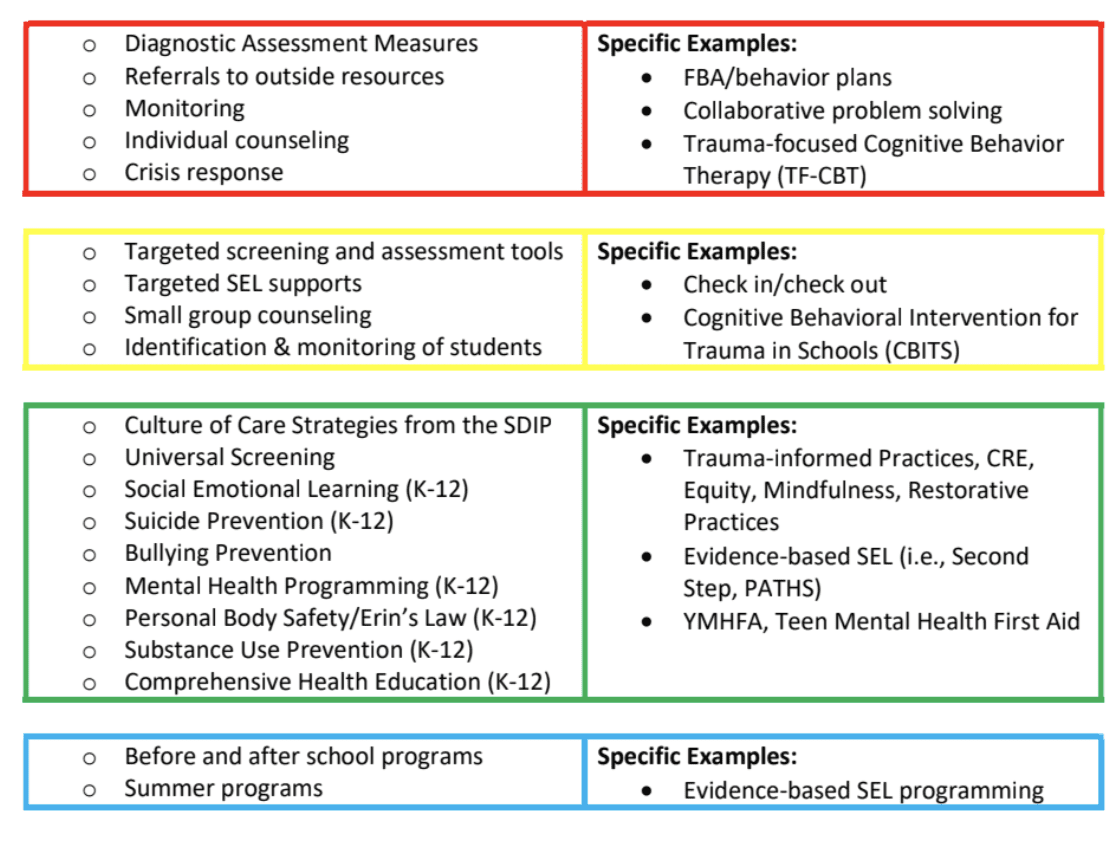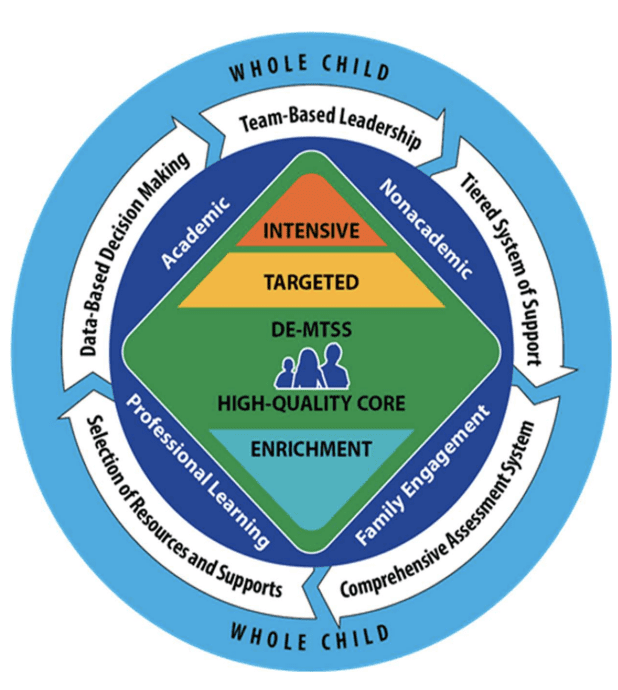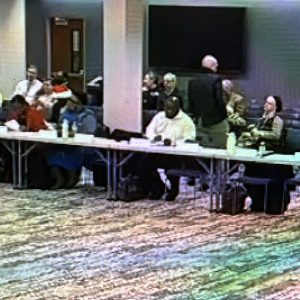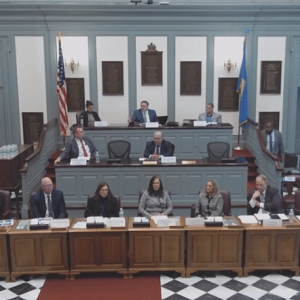
Delaware’s Multi-Tiered System of Supports focus on academic, mental and behavioral health. (Photo by Deposit Photos)
A member of the state task force that’s trying to improve student behavior and school environments in schools said that tiered mental health programs are killing Delaware classroom productivity.
“They don’t need all the fancy stuff,” said Sen. Eric Buckson, R-Dover, said. “They don’t need the interventions. They don’t need the couches, they don’t need the specialists. They just need to realize, okay, there’s accountability back in the system and I need to handle my business.”
He made the comment in the Student Behavior and School Climate Task Force’s fourth meeting Monday night.
The focus of the meeting was the multi-tiered system of supports, referred to as MTSS, in First State schools.
“Mental illness is real, mental fitness is real,” Buckson said. “Mental health is a good thing that we all have, but we’re labeling it as some stranglehold on education, and the weight of it is collapsing the system.”
The 24-member task force, made of government and educational officials as well as school behavioral specialists and resource officers, was created to study the needs and options of students and educators to improve student behavior and school climate policies.
Studies have shown that the support systems help improve student behavior, academic outcomes, on-time graduation rates, said Kathy Kelly, director of curriculum, instruction and professional development at the Delaware Department of Education.
They also lead to better system-level outcomes, she said, including more instructional and planning time for educators, efficient use of resources and staff, a decreased inappropriate special education referrals and placement rate, a reduction in student time in special education services and grade retention, Kelly said.
The framework of the support systems can be different at each school or district, but it typically follows this outline:
After initial enrichment supports like before, after and summer school, Tier I includes universal interventions for all types of students, bullying prevention, substance use prevention, health education, suicide prevention, personal body safety and more.
Tier II are more targeted supports, like small group counseling, mental health screenings and more.
Tier III is the most intense and can include individual counseling, crisis response, monitoring and more. This is the level where schools would refer struggling students to external services, like a psychologist, for example.
The system focuses on the whole child, said Dale Matusevich, director of exceptional children resources at the education department.
“This means that we’re not only interested in the academic piece, but also the non-academic outcomes as well,” Matusevich said.
Professional learning and family engagement are included in the framework, he said, because it’s understood that if not everyone is involved and providing input, it’s difficult for students to successfully benefit from it.
Buckson disagreed with the adage that social-emotional learning is paramount.
“Most of these kids are coming from loving homes,” he said. “Most of these kids have the structure and it’s the ones that don’t that we need to be laser focused on. But when you just take the whole child and say that every child has to be parented by the classroom instructor, now the classroom instructor can’t effectively teach the math and the science and deal with the kids that do need help.”
Buckson has consistently said there are definitely students who need more support and intervention, but that many students need to learn how to get through tough times and build character to help them grow into a responsible, productive adult.
RELATED: Senator opposes mental health days for students
Monday night, Buckson wanted to know the Department of Education’s plan and next steps with the tiered system.
Matusevich said the state collects data across different avenues and discipline is one of those. It uses that information to develop policies and procedures that can be lent to or given to school districts.
Buckson said his greatest fear with data is the data itself.
It’s whatever you make it,” he said. “You’re saying it shows that things are better. When I talk to the classroom instructor and they say ‘Like heck it is’ … clearly our education levels are not where they need to be.”
He also said his greatest fear is implementing data-based policies that only look good on paper.
Kelly said she agrees that often data provides more questions than answers.
She said it’s important for the state, which is looking at high-level data and broad trends, to create a vehicle for schools to have support specific to an individual student.
Ralph Ackerman, a school board member in Brandywine School District, pointed out that different schools in districts can be at different levels of support system implementation.
He asked the representatives from the education department if there’s any data that shows the further a school implements a tiered system, the less behavioral referrals there are.
“We’re in the phase of, let’s look at all this data and see what we need to change, and what more intensive supports do our districts and charters need,” Kelly said. “So that’s a great question.”
The task force’s next meeting is July 15 at 4 p.m. Watch it here.
RELATED STORIES:

Raised in Doylestown, Pennsylvania, Jarek earned a B.A. in journalism and a B.A. in political science from Temple University in 2021. After running CNN’s Michael Smerconish’s YouTube channel, Jarek became a reporter for the Bucks County Herald before joining Delaware LIVE News.
Jarek can be reached by email at jarek@delawarelive.com or by phone at (215) 450-9982. Follow him on Twitter @jarekrutz and on LinkedIn.
Share this Post














